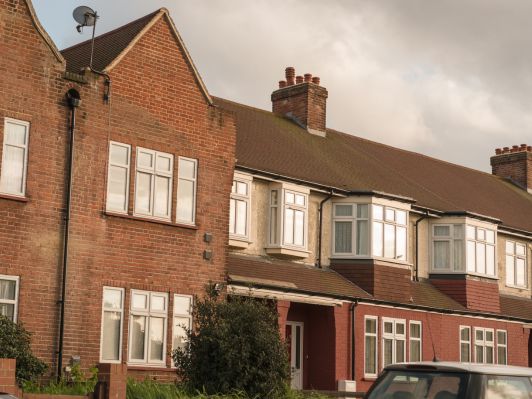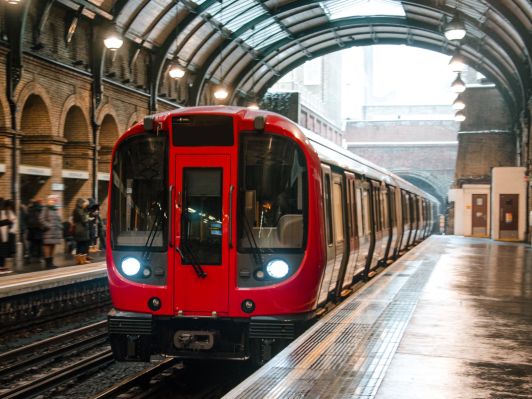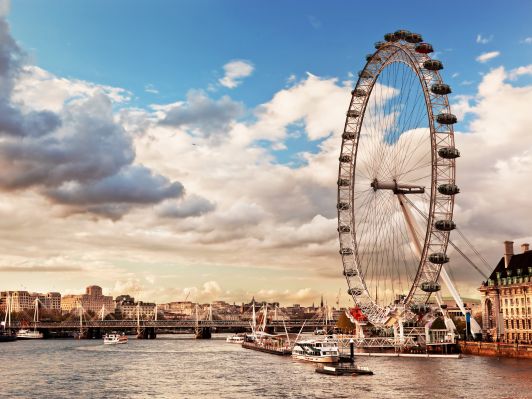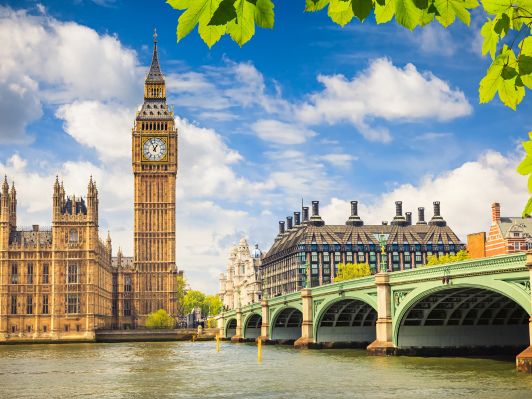London is known for its high living costs, with some planning you can enjoy city life without breaking the bank.
In this article, we share tips on how to save money in London. Helping you cut costs on housing, transport, food, attractions, and more. Whether you’re a student, a professional, or a tourist, these money saving tips can help. By managing your expenses, you can experience all London has to offer. Our aim is to provide clear and helpful advice.
1. Saving on Housing

Housing can be the largest expense for Londoners. There are ways to reduce these costs without sacrificing comfort or convenience. Exploring alternatives to Central London living can reduce your costs and help you save money.
Renting Outside Central London
Living outside Central London offers more space and cheaper rents. Areas like Walthamstow, Tooting, and Barking may be cheaper with good transport links. Although it may be a longer commute, cheaper locations can reduce your rent and save money. These areas may offer a more relaxed lifestyle.
Access to local stores and community markets can help save money living in London.
House-Sitting or Flat Swapping
House-sitting allows you to live rent-free while taking care of someone’s home. Flat swapping lets you exchange homes with another person for a set period. These arrangements are perfect for those with flexible schedules. They can save you money on rent for the duration of the swap.
Student Housing
Students can share flats or opt for university housing to keep costs low. Splitting rent, utilities, and bills with roommates can reduce monthly expenses. Students can benefit from student discounts offered by landlords and retailers.
Many universities provide housing support. This can help students find affordable living arrangements close to campus.
Embracing DIY Solutions
Learning basic DIY skills can save you money on repair services. By handling small repairs yourself, you lower your expenses and gain new skills. Leaning DIY can help you maintain your home to reduce your monthly costs.
Read our guide on: How to save money fast on a low income in the UK
2. Saving on Transportation

Transport costs in London can add up. Use of technology can help keep these expenses under control. Using public transport, including the tube, buses and railway, is one of the best ways to save money.
Using an Oyster Card
An Oyster card offers discounted fares on buses, trams, the Tube, and some rail services. This contactless payment method is popular. Registering your Oyster card, so you can get refunds for any overcharges. Many Londoners rely on their Oyster card to save money on travel costs.
Transport Apps
Apps such as CityMapper and Google Maps are free apps that help you get around. They can show you different travel routes and options. These apps guide you to help to save money on transportation.
Cycling Options
With a good network of cycle lanes, London is increasingly bike-friendly. Cycles are available for hire making it a good option for short journeys. Using a bike reduces travel costs. It’s a healthy way to see the city from a new perspective, and one of the cheapest ways to get around.
Carpooling & Ride-Sharing
Sharing rides through carpooling or ride-sharing services can lower costs. This is good for those who travel during off-peak hours or to areas with limited transport links. Splitting the cost with others means you can pay less.
3. Saving on Food

Food costs can add up, but there are ways to enjoy meals without overspending. Cook your own meals and plan ahead. This will help you control your costs and make healthier choices.
Cooking at Home & Preparing Your Own Food
By preparing your meals you control the quality of the food you eat. Meal planning and bulk buying from supermarkets will help you save money. Cooking your own food often, is a proven way to reduce your food expenses. Cooking at home encourages you to experiment with new recipes.
Smart Shopping & Vouchers
Many supermarkets offer loyalty schemes to help lower your food bills. By taking advantage of these schemes, you can reduce your food costs at the local convenience store. This approach helps you to shop smart and helps you get the best deals available.
Check our guide on: 52 Week Savings Challenge – How to Save £1378 in 1 Year
4. Saving on Attractions & Events

London offers a lot of cultural and recreational activities. Many of these can be enjoyed without spending a fortune. From museums to parks, there are lots of ways to explore the city on a budget.
Enjoying Free Attractions
Many of London’s best museums, galleries, and parks are free to enter. Including:
- The British Museum
- National Gallery
- Imperial War Museum
- Natural History Museum
- Victoria and Albert museum
- Tate Modern
- Tate Britain
- National Maritime Museum
- Natural History Museum
- Science Museum
Spending a day at Hyde Park or Regent’s Park. They’re free and a refreshing escape from urban life. Leicester Square is another popular area where you can enjoy the lively atmosphere
The London Pass
The London Pass includes entry to many places for a single fee. Offering discounted tickets and a convenient way to experience the city. This is good if you plan to visit several sites in a short period. It provides savings compared to purchasing individual tickets at the ticket office.
Booking Tickets in Advance & Discounted Tickets
Many attractions offer early-bird discounts for tickets booked in advance. Planning your day and buying discounted tickets ahead of time saves money. It can help you avoid long queues and sold-out events. This is one of the best ways to ensure you pay less and get the most out of your visit.
5. Saving on Clothing

Fashion in London doesn’t have to be expensive. There are ways to maintain a stylish wardrobe while keeping costs under control.
Second-Hand Markets, Thrift Stores & Charity Shops
London’s vibrant vintage scene offers a variety of second-hand stores, thrift markets, and charity shops where you can find quality clothing at a fraction of the cost of new items. Areas such as Camden, Shoreditch, and Notting Hill are well-known for their unique finds and bargain prices.
These charity shops often offer excellent deals on clothes, making them a popular destination for those looking to save money.
Seasonal Sales & Outlets
Keep an eye on seasonal sales at major department stores and discount outlets. Planning your purchases around these sales can yield savings on high-quality items. Many retailers offer extra discounts during end-of-season clearances, so you buy clothes at cheaper prices.
Signing up for newsletters from your favourite brands can ensure you receive alerts about upcoming discounts.
6. Additional Money-Saving Tips
Reduce your utility bills by using energy-saving measures at home. Switch to LED lighting, use energy-efficient appliances, and insulate your home. Keep an eye on your energy usage with smart meters.
Identify areas where you can save money. These good value practices not only lower your bills but contribute to a greener environment.
Review your subscriptions and memberships regularly to avoid paying for services you no longer use. Cancel or negotiate services like streaming platforms, gym memberships, or magazine subscriptions.
Sharing subscriptions with friends or family is another top tip to reduce monthly expenses and ensure you get the most out of your bank account.
Take advantage of local community events and free activities. Many places in London host free outdoor concerts, art exhibitions, and festivals that let you connect with others.
This is a great way to experience London without the extra expense of restaurants or paid events.
Plan your purchases and avoid impulse buying by setting a monthly budget for non-essential items. Creating a shopping list before you go to the store helps you focus on what you need. It helps to prevent overspending on other items. This shop smart approach is essential for anyone looking to reduce their expenses.
Build an emergency fund to cover unexpected expenses. Setting aside a small amount each month can grow into a financial cushion over time. It can offer peace of mind and reducing reliance on high-interest bank loans. This way, you ensure that you’re prepared for any unforeseen costs while continuing to save money.
How Much Money Does a Tourist Need?
The daily budget for visitors to London can vary depending on travel style. Budget travellers might spend around £70-£100 per day on essential expenses. Mid-range visitors could expect to spend between £150-£250.
For those seeking a more luxurious experience, daily costs can exceed £300. It is important to note these figures are estimates and planning ahead with a detailed plan can help manage costs.
Summary
By exploring alternative housing options such as renting in outer boroughs, house-sitting, or flat swapping, you can lower your monthly expenses. Using DIY solutions for home maintenance further reduces the need for professional services, helping you to handle small repairs on your own. These changes not only help you save money but also encourage a more self-sufficient lifestyle in a city where every penny counts.
FAQs – How to Save Money in London
Can I live on £1,500 a month in London?
Living on £1,500 a month is challenging. Manage by sharing housing, cooking at home, and using public transport. It requires strict budgeting and sometimes lifestyle compromises.
Can I save money while living in London?
Yes. With smart budgeting, prioritising expenses, and using discounts, many Londoners can set aside savings each month.
Is a salary of £25,000 enough to live in London?
A £25,000 salary can be enough if you manage costs carefully by living in affordable areas and sharing housing. Saving on this income demands additional financial planning.
Do I need to carry cash when visiting London?
While most transactions are digital, carrying a small amount of cash is useful for small vendors and emergencies.
Disclaimer: We are not providing financial advice. These are just tips for informational purposes.
Related Guides:

